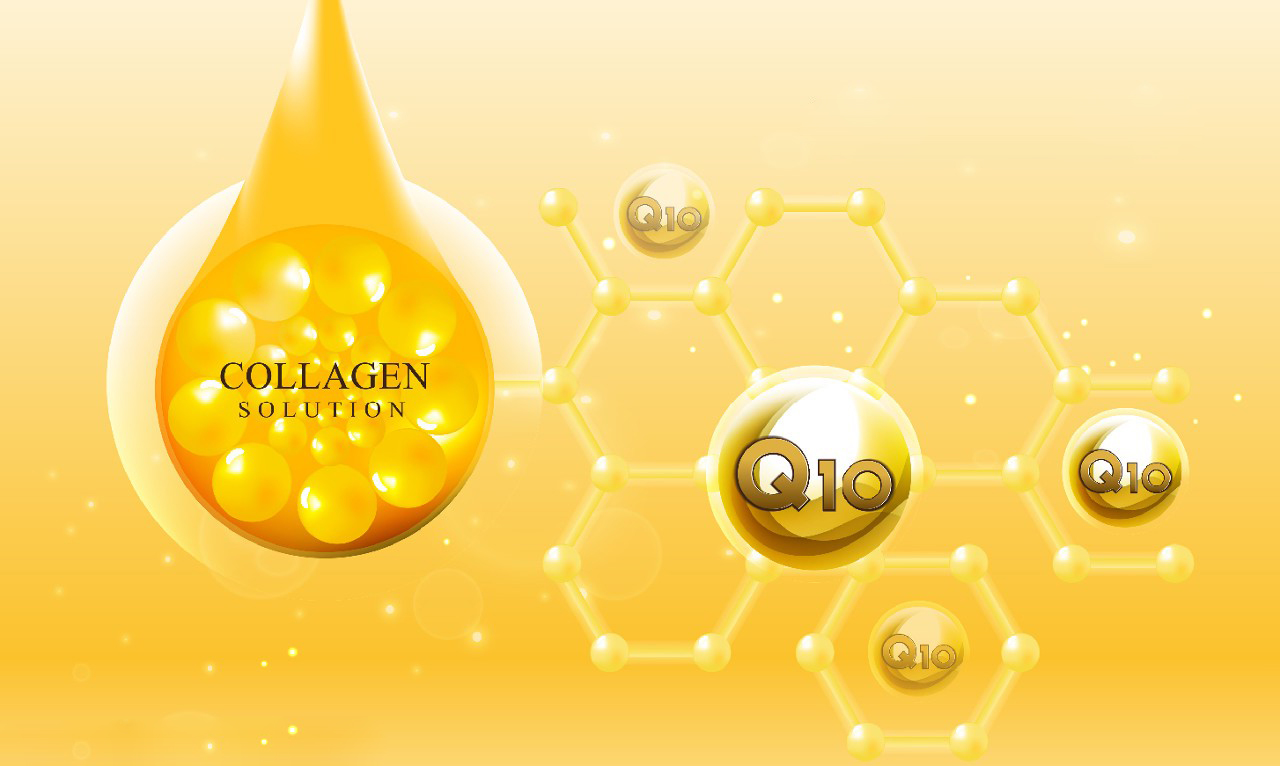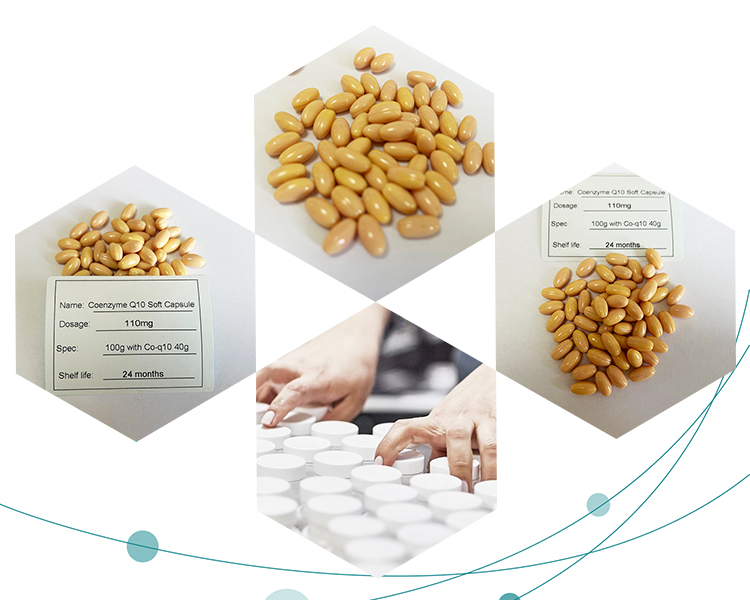Coenzyme Q10 capsules are dietary supplements that contain Coenzyme Q10 in a concentrated form. Coenzyme Q10 (CoQ10) is a naturally occurring compound found in every cell of the body, primarily in the mitochondria. It plays a crucial role in producing energy and protecting cells from oxidative damage. Coenzyme Q10 also acts as an antioxidant, scavenging free radicals and reducing oxidative stress.
Coenzyme Q10 is available in supplement form, typically as capsules. The efficacy and function of Coenzyme Q10 capsules are attributed to several potential benefits:
Energy Production: Coenzyme Q10 is involved in the production of adenosine triphosphate (ATP), which is the primary energy source for cells. By supporting mitochondrial function, CoQ10 helps optimize energy production, which may lead to improved energy levels and reduced fatigue.
Heart Health: Coenzyme Q10 is concentrated in organs with high energy requirements, such as the heart. Research suggests that Coenzyme Q10 supplementation may benefit individuals with certain heart conditions, including heart failure, high blood pressure, and angina. It may help improve heart function, reduce oxidative stress, and support overall cardiovascular health.
Antioxidant Properties: As an antioxidant, Coenzyme Q10 helps neutralize free radicals, which are harmful molecules that can damage cells and contribute to aging and various diseases. By reducing oxidative stress, Coenzyme Q10 may help protect cells from damage and support overall health.
Exercise Performance: Some studies suggest that Coenzyme Q10 supplementation may enhance exercise performance by improving mitochondrial function and increasing energy production. Athletes and individuals engaged in regular physical activity may experience benefits such as improved endurance and faster recovery times.

Migraine Prevention: There is some evidence to suggest that Coenzyme Q10 supplementation may help reduce the frequency and severity of migraines, possibly due to its antioxidant and mitochondrial support properties. However, more research is needed to confirm its effectiveness for this purpose.
Neurological Health: Coenzyme Q10 may play a role in supporting neurological health and cognitive function. Some studies have investigated its potential benefits for conditions such as Parkinson’s disease, Alzheimer’s disease, and other neurodegenerative disorders. While research is ongoing, preliminary findings suggest that Coenzyme Q10 supplementation may have neuroprotective effects.
It’s important to note that while Coenzyme Q10 supplements are generally considered safe for most people, they may interact with certain medications or have adverse effects in some individuals. As with any supplement, it’s advisable to consult with a healthcare professional before starting CoQ10 supplementation, especially if you have any underlying health conditions or are taking medications. Additionally, the efficacy of Coenzyme Q10 supplements may vary depending on factors such as dosage, formulation, and individual response.
Adverse effects of Coenzyme Q10 Capsules
Coenzyme Q10 (CoQ10) is a naturally occurring compound found in the body, particularly in the mitochondria, which are the energy-producing centers of cells. It’s also available as a dietary supplement. While Coenzyme Q10 is generally considered safe for most people when taken in recommended doses, like any supplement, it can have potential adverse effects, especially when taken in high doses or in combination with certain medications or health conditions. Here are some potential adverse effects of Coenzyme Q10 capsules:
Gastrointestinal Issues: Some people may experience mild gastrointestinal symptoms such as nausea, diarrhea, or stomach upset when taking Coenzyme Q10 supplements.
Allergic Reactions: Allergic reactions to Coenzyme Q10 are rare but possible. Symptoms may include rash, itching, swelling, dizziness, or difficulty breathing. If you experience any allergic symptoms after taking Coenzyme Q10, seek medical attention immediately.
Interaction with Blood Thinners: Coenzyme Q10 may reduce the effectiveness of blood-thinning medications like warfarin (Coumadin) or increase the risk of bleeding when taken with these drugs. If you’re taking blood thinners, consult your healthcare provider before taking Coenzyme Q10 supplements.
Interaction with Blood Pressure Medications: Coenzyme Q10 may lower blood pressure slightly, so combining it with medications for high blood pressure could cause blood pressure to drop too low. If you’re taking blood pressure medications, talk to your doctor before taking Coenzyme Q10 supplements.

Interaction with Chemotherapy Drugs: Coenzyme Q10 might interfere with the effectiveness of certain chemotherapy drugs, so individuals undergoing cancer treatment should consult their oncologist before taking Coenzyme Q10 supplements.
Potential for Insomnia: In some cases, Coenzyme Q10 supplementation has been associated with insomnia or difficulty sleeping, although this effect is not well-documented.
Liver Enzyme Elevations: There have been rare reports of elevated liver enzymes in individuals taking Coenzyme Q10 supplements, though it’s unclear if Coenzyme Q10 is directly responsible for these elevations.
Interactions with Diabetes Medications: Coenzyme Q10 might lower blood sugar levels, so individuals with diabetes who are taking medications to lower blood sugar should monitor their blood glucose levels closely when taking Coenzyme Q10 supplements.
Effect on Pregnancy and Breastfeeding: There is limited information about the safety of Coenzyme Q10 supplements during pregnancy and breastfeeding, so pregnant or breastfeeding women should consult their healthcare provider before taking them.
Other Potential Side Effects: Some individuals may experience headaches, dizziness, fatigue, irritability, or other mild side effects when taking Coenzyme Q10 supplements.
It’s essential to talk to your healthcare provider before starting any new supplement regimen, including Coenzyme Q10, especially if you have underlying health conditions or are taking medications. Your doctor can help you determine if Coenzyme Q10 is safe and appropriate for you, as well as advise you on the proper dosage.
